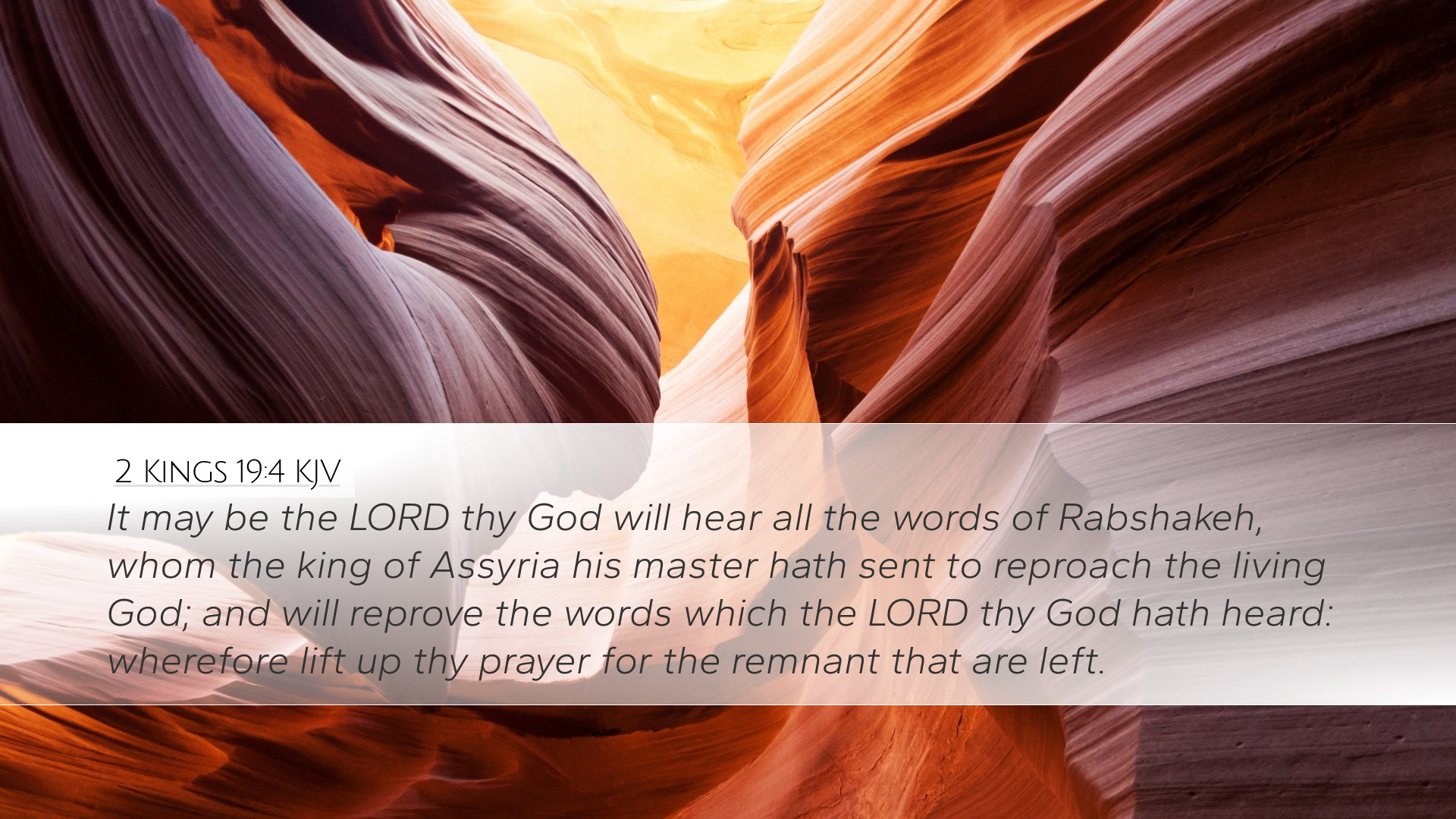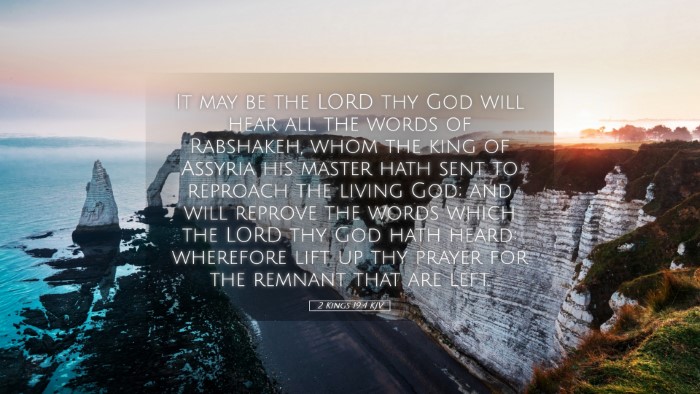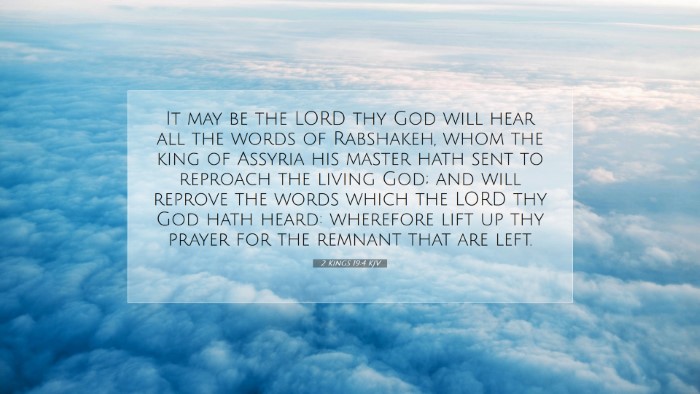Bible Commentary on 2 Kings 19:4
Text of the Verse: "And it was told the king of Judah saying, Behold, the king of Assyria hath heard the kings of Egypt, and had gather'd all his forces against him. Send a token unto the Lord your God, and the assurance that he will protect you in the time of distress."
Contextual Background
This verse falls within a historic narrative concerning King Hezekiah of Judah during a perilous time when Assyria, under King Sennacherib, was imposing threats against Jerusalem. Understanding this context is crucial, as it sets the stage for the themes of divine intervention, fear, and faith.
Insights from Commentators
Matthew Henry's Commentary
Matthew Henry emphasizes the earnestness of Hezekiah's situation, marking it as critical both politically and spiritually. In his analysis, Henry notes that the reports received by Hezekiah were alarming: "The king of Assyria has risen, and there is a great fear in the camp." He speaks about the need for intervention from the Lord, outlining that seeking divine help is paramount in times of trouble.
God's Sovereignty
Henry further expounds on the sovereignty of God, suggesting that the tribulations faced by Hezekiah are not merely political but spiritual tests. "It was a time for prayer, and a time for threat," he writes, reminding readers that true strength lies in relying on God.
Albert Barnes' Notes
Albert Barnes takes a slightly different approach, emphasizing the importance of sending a messenger to the prophet Isaiah for advice. He articulates that Hezekiah’s initial response was correct as it indicated a dependence on divine counsel. Barnes notes the significance of the term "token" in this context, interpreting it as a symbol of a covenant between God and His people, where faith is met with divine reassurance.
Human Frailty and Divine Assurance
In elaborating on human frailty, Barnes reflects on the fear of the people: "They were not merely concerned for their lives but were aware of the spiritual implications of failure." The sending of a token challenges the reader to consider their own symbolic gestures of faith in troubling times.
Adam Clarke's Commentary
Adam Clarke provides a thorough investigation into the interaction between Hezekiah and his advisors. He notes that the response from Assyria represents a culmination of trials that the people of Judah are enduring. Clarke points out that the king's decision to involve the Lord in deliberations is worth noting: "He acted as a good king, understanding that reliance on God brings hope." He encourages believers to exhibit faith which acts as a bastion against fear.
Prayer as a Weapon
Clarke enthusiastically discusses the power of prayer as a weapon against despair. He posits that "Sending a token unto the Lord is symbolic of our faith, representing an act of turning to Him and seeking His guidance." The emphasis on prayer highlights the theme that, despite overwhelming odds, nothing is impossible when one's heart is directed towards God.
Theological Reflections
Combining the perspectives from these commentaries, several theological reflections emerge:
- The Necessity of Prayer: The actions of Hezekiah exemplify the importance of prayer and seeking divine help in dire circumstances.
- Symbols of Faith: The act of sending a "token" signifies not only a plea for assistance but also a demonstration of one's faith in God’s promises.
- Divine Assurance Amidst Adversity: This verse reminds believers that even in the midst of threats, God’s presence offers peace and assurance.
- National and Personal Responsibility: The intertwining of the national crisis with personal faith indicates that leadership should always point to reliance on God from their people.
Practical Application
The insights gained from 2 Kings 19:4 guide modern believers in several practical ways:
- In times of trouble, turn to God through prayer before making decisions.
- Practice faith through symbolic actions that demonstrate trust in God's promises.
- Encourage communal prayer within congregations, reflecting on collective faith that influences the nation and church.
- As leaders—whether in the church, community, or family—guide those under your care to seek God first in times of need.
Conclusion
In examining 2 Kings 19:4 through the lenses of esteemed commentators, we uncover a rich tapestry of insights regarding prayer, faith, and God's sovereignty. The challenges faced by Hezekiah resonate deeply, revealing timeless truths for pastors, students, theologians, and Bible scholars alike. May the reflections and applications derived from this commentary inspire continued reliance on the divine in every aspect of life.


